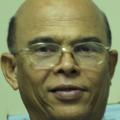Burma's Prime Minister Thein Sein told his Asian counterparts on Oct. 24 that the ruling junta could relax the conditions of democracy icon Aung San Suu Kyi's detention, the Japanese delegation spokesman Kazuo Kodama said. The Nobel Peace laureate had "softened" her attitude toward the military regime since her house arrest was extended in August for a further 18 months, the official quoted Thein Sein as saying.
Whereas Thein Sein announced at the regional summit in Thailand that Burma also wants elections next year to be "inclusive," he did not state whether Suu Kyi would be allowed to participate.
Asian leaders expressed rare optimism about military-ruled Burma on Oct. 25, expressing hopes of stability on its insecure northern border as well as hopes of a shift in attitude toward detained pro-democracy figure Aung San Suu Kyi.
After talks with Thein Sein during the summit, Asian leaders said the reclusive state acknowledged it needed to show the world it can hold free elections. But the sentencing of opposition leader Suu Kyi, a Nobel Peace Prize winner, to a further 18 months of detention in August has raised questions over whether next year's election will be a charade.
Thai Prime Minister Abhisit Vejjajiva, after a meeting with Thein Sein on the sidelines of the meeting, said the two had talked about the election and Burma's national reconciliation process, along with other issues. Thein Sein also told Abhisit that Burma's ruling military junta would soon announce an electoral law for next year's planned election, but provided no further details.
However, many critics are skeptical, saying the regime has made such promises in the past without honoring them. Kraisak Choonhavan, president of the ASEAN Inter-Parliamentary Myanmar Caucus, said the junta has often stated that it would respect democratic values, but has constantly refused to let its opponents participate freely in the political process.
Burma has suffered under military boots since 1962. The regime has earned a reputation as one of the world's worst human rights violators. It brutally suppressed pro-democracy movements in 1988, during the Depayin conspiracy on May 30, 2003, and the Saffron Revolution in September 2007, as well as many other sporadic crackdowns.
The junta has arrested over 2,000 political dissidents including Suu Kyi, who has been confined to her residence for 14 of the last 20 years.
The regime held a unilateral referendum at gunpoint in May, 2008, just a few days after Cyclone Nargis devastated the country. The junta said its 2008 Constitution was ├ éČ┼"approved├ éČ Ł by more than 90 percent of eligible voters in the referendum, which has been widely dismissed as a sham.
The regime has ignored calls from the international community and Burma's main opposition party, the National League for Democracy, to review the Constitution, which will only bring further troubles to the Burmese people.
The elections planned for 2010 are intended to legalize military rule. People are convinced that, like the referendum held at gunpoint, they will not be free or fair. The junta may not be able to manage the worsening socio-economic situation if it continues to refuse the national reconciliation process being urged by the opposition NLD, the United Nationalities Alliance and exiled dissident groups.
The NLD and UNA have pointed out that the ratification of the Constitution staged by the junta was carried out against the will of the people and without observing international norms.
The junta has shown no respect for successive resolutions adopted by the U.N. General Assembly calling for the return of a democratic system in Burma through a tripartite dialogue between the junta, led by Senior General Than Shwe, democratic forces led by Aung San Suu Kyi and representatives of ethnic nationalities. It is clear that the junta has no plan to heed the U.N. call to release political prisoners, which is a precondition to the tripartite dialogue.
Looking at facts on the ground, there are more acts of violence these days, more military attacks in the ethnic minority areas, more arrests, more political prisoners, more restrictions toward the media, more control on Internet users and civil society groups. The situation needs to be handled carefully, with more pressure put on the regime to meet the U.N. demands.
ASEAN leaders must consider whether Burma is heading toward an authoritarian empire or a democratic state. According to a Burmese saying, while the elephant is in front of you, you needn't search for its footprints. Building an army of 500,000 soldiers and digging tunnels for warfare purposes without facing any external threat, can anyone dare say Burma is on the way to democracy? It is obvious that Burma's generals are on the road to autocracy and enslaving their own people.
The new ASEAN Intergovernmental Commission on Human Rights ├ éČ" which critics say is toothless and already discredited by including military-ruled Burma ├ éČ" has no power to punish members such as Burma. Nongovernmental rights organizations and London-based Amnesty International have expressed concerns over the body, while the U.N. High Commissioner for Human Rights says it has no clear mandate to help victims of abuse.
(Note: You can view every article as one long page if you sign up as an Advocate Member, or higher).





